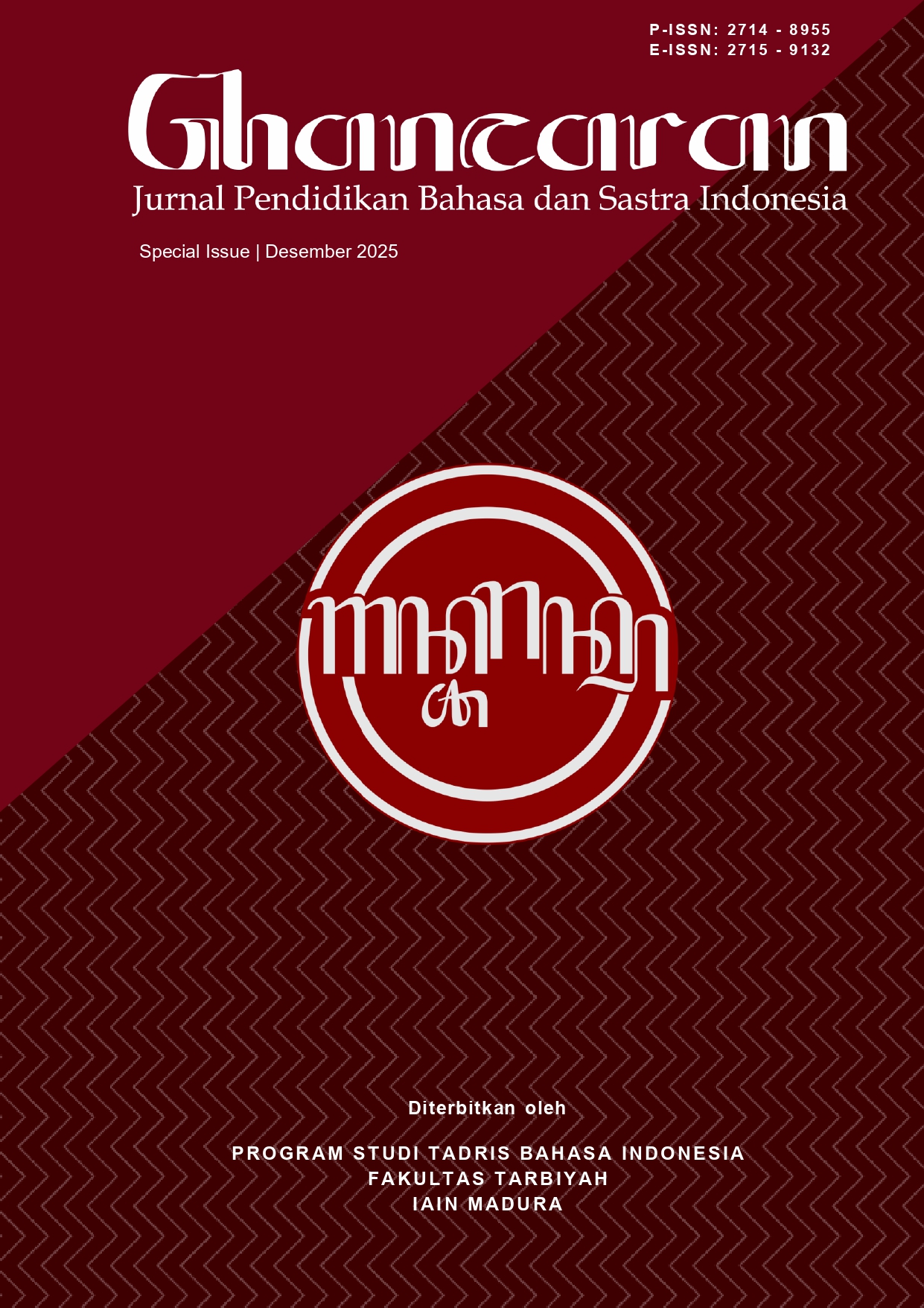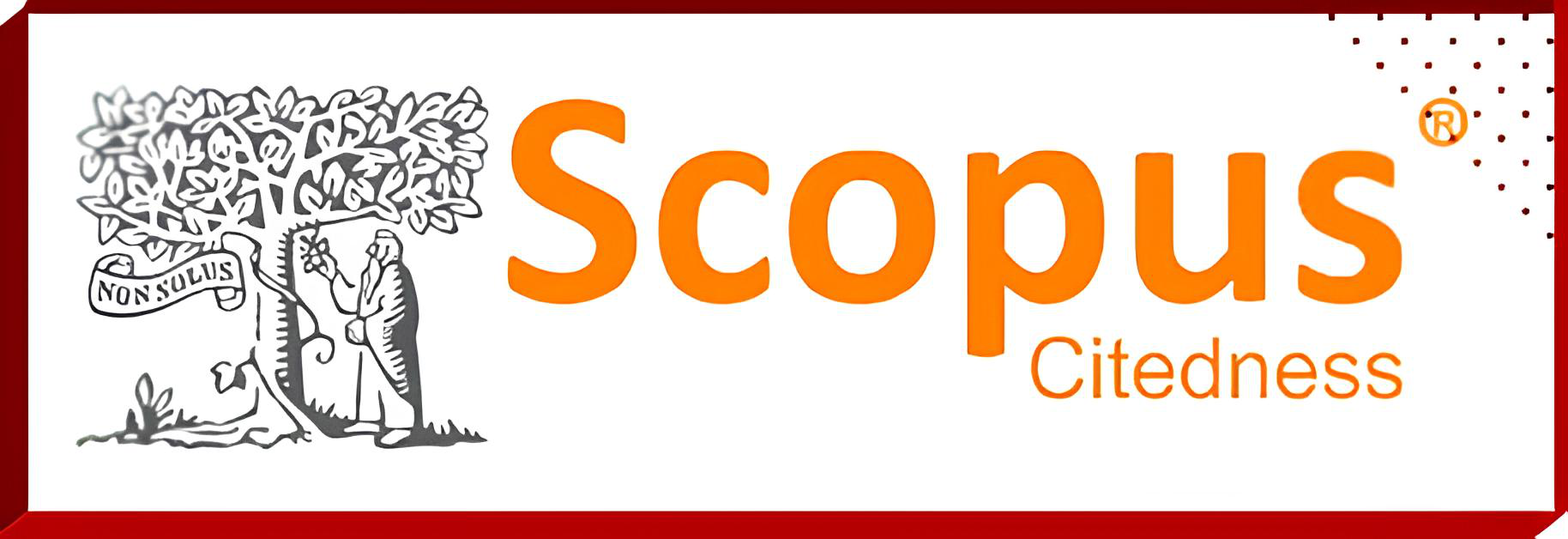Preserving the Regional Language through Traditional Culinary Tourism in Tulungagung
 Abstract views: 266
,
Abstract views: 266
,
 PDF downloads: 123
PDF downloads: 123
Abstract
Several regional languages in Indonesia have experienced a decline in vitality, some even becoming extinct. Javanese, with the largest number of speakers, could potentially experience the same condition if not maintained sustainably. One factor contributing to the marginalization of Javanese is the growing popularity of imported foods among the millennial generation, which distances them from traditional culinary vocabulary in Javanese. This study aims to examine the role of traditional culinary tourism in sustaining the existence of the Javanese language in Tulungagung. The research employed a qualitative method with an ethnographic approach through field observations, interviews with culinary business owners, and discourse analysis of language use in promotion and interactions among entrepreneurs, tourists, and local communities. The findings reveal that Javanese continues to be consistently used in the naming of traditional foods, transactional communication between sellers and buyers, and culinary history narratives passed on to visitors. The use of Javanese in these contexts strengthens local cultural identity while promoting intergenerational language transmission. The study also identified 22 traditional culinary products that remain preserved, with language practices combining Javanese Krama and Ngoko, as well as code-switching with Indonesian depending on communicative needs. These findings affirm that traditional culinary tourism in Tulungagung not only contributes to the preservation of gastronomic heritage but also serves as a strategic medium for the maintenance and revitalization of the Javanese language in the era of globalization.
Downloads
References
Alden, Y. A., Suryanto, E., & Suhita, R. (2019). Kesalahan berbahasa Indonesia pada surat dinas Desa Batan sebagai materi ajar Bahasa Indonesia di SMP. Basastra: Jurnal Bahasa, Sastra, dan Pengajarannya, 7(2), 198–206.
Aini, A. N., dkk. (2024). Peran kuliner tradisional Nusantara dalam memengaruhi kegiatan ekonomi dan bahasa di Indonesia. Jurnal Pendidikan Tambusai, 8(2), 22243–22252.
Aulia, R. F. N. (2024). Maraknya makanan junk food di era Gen Z, mengakibatkan dampak buruk bagi kesehatan tubuh. Kompasiana.
Baiti, H. U. N., & Nuryani. (2022). Pemertahanan bahasa Jawa krama di Desa Jagir Kecamatan Sine Kabupaten Ngawi. Jurnal Alinea: Jurnal Bahasa, Sastra, dan Pengajaran, 11(1).
Chien, Y. (2023). Language and cultural identity in the era of globalization. Journal of Language and Culture, 15(2), 45–60.
Chien, C., Sasmita, L., Larasati, A., Wijaya, A., & Abraham, G. (2023). Peran kuliner Nusantara dalam pembentukan identitas nasional. Jurnal Pendidikan, Seni, Sains dan Sosial Humanioral, 1(2), 1–25.
Fill, A., & Mühlhäusler, P. (2001). The ecolinguistics reader: Language, ecology, and environment. Continuum.
Fishman, J. A. (1991). Reversing language shift: Theoretical and empirical foundations of assistance to threatened languages. Multilingual Matters.
Giles, H., Bourhis, R. Y., & Taylor, D. M. (1977). Towards a theory of language in ethnic group relations. In H. Giles (Ed.), Language, ethnicity, and intergroup relations (pp. 307–348). Academic Press.
Hafizha, N. (2023). Javanese language vitality in the digital era. Jurnal Bahasa dan Sastra, 18(1), 22–34.
Hakim, A. (2022). Bahasa daerah dan ketahanan budaya lokal. Jurnal Kebudayaan Nusantara, 10(3), 55–67.
Hakim, I. N., & Hamidah, S. (2022). Peran Kuliner Tradisional dalam Mendukung Pemajuan Kebudayaan di Destinasi Pariwisata Prioritas Yogyakarta. Mozaik Humaniora, 21(2), 193–208.
Harsana, B. (2020). Revitalisasi Bahasa Daerah melalui Pendidikan dan Budaya. Jurnal Pendidikan Bahasa, 12(2), 99–110.
Haugen, E. (1972). The ecology of language. Stanford University Press
Iswatiningsih, Daroe.(2014). Etnografi Komunikasi: Sebuah Pendekatan Dalam Mengkaji Perilaku Masyarakat Tutur Perempuan Jawa. In Prosiding Seminar Nasional Prasasti.
Kementerian Pendidikan dan Kebudayaan. (2018). Peta Bahasa Daerah di Indonesia. Jakarta: Badan Pengembangan dan Pembinaan Bahasa.
Lestari, Oktavia Winda., Jazeri, Mohamad., & Mukhlas, Moh. (2022). Analysis of The Use of Slang Variation by Teenagers in Selokajang Village: A Sociolinguistics Study. Ghancaran: Jurnal Pendidikan Bahasa dan Sastra Indonesia. Vol. 4, No. 1.
Mardikantoro, Hari Bakti. (2016). Pemertahanan Bahasa Jawa dalam Pertunjukan Kesenian Tradisonal di Jawa Tengah. Litera: Jurnal Penelitian Bahasa, Sastra, dan Pengajarannya. Vol. 15, No. 2.
Mawarsih, Putri Beny & Febriani, Ika. (2022). Pemertahanan Bahasa Jawa dalam Komunikasi Anggota Organisasi Ikatan Mahasiswa Bidikmisi Universitas Trunojoyo Madura (Kajian Sosiolinguistik). Ghancaran: Jurnal Pendidikan Bahasa dan Sastra Indonesia. E-ISSN: 2715-9132 ; P-ISSN: 2714-8955. Vol.3, No. 2. Hal.197-213.
Nisah, N., Prasetya, K. H., & Musdolifah, A. (2020). Pemertahanan Bahasa Daerah Suku Bajau Samma di Kelurahan Jenebora Kecamatan Penajam Kabupaten Penajam Paser Utara. Jurnal Basataka (JBT), 3(1), 51–65.
Putra, A. R., Ernawati, E., Jahroni, J., Anjanarko, T. S., & Retnowati, E. (2022). Creative Economy Development Efforts in Culinary Business. Journal of Social Science Studies (JOS3), 2(1), 21–26.
Qomar, Mujamil, (2022). Metode Penelitian Kualitatif . Malang: Intelegensia Media (Intrans Publishing Group).
Rahmawati, Anggun Putri. (2025). Sertifikasi Halal: Kunci Peningkatan Daya Saing Produk Nasional. Kementerian Keuangan.
Robiah, Dini Fitriani Noor & Hernawan. (2021). Perubahan, Pergeseran, dan Pemertahanan Bahasa Sunda di Lingkungan Universitas Pendidikan Indonesia. LOKABASA : Jurnal Kajian Bahasa, Sastra, dan Budaya Daerah serta Pengajarannya. Volume 12, No. 1, Bulan April Tahun 2021, Hal. 27-34. 2338-6193 (print) | e-2528-5904 (online).
Sari, Inda Puspita & Riswanto, Didik. (2019). Pemertahanan Bahasa Jawa di Kecamatan Sukakarya Kabupaten Musi Rawas. Prosiding Seminar Nasional Bulan Bahasa (Semiba) 2019. ISBN: 978-623-707438-0. Hal. 126-143.
Sudarsono, Sony Christian. (2023). Teori Konteks Dell Hymes: SPEAKING. Sastranesia.id.
Sudaryanto. (1990). Metode Linguistik: Metode Dan Aneka Teknik Analisis Bahasa. Yogyakarta: Duta Wacana University Press.
Utami, S. (2018). Kuliner Sebagai Identitas Budaya: Perspektif Komunikasi Lintas Budaya. CoverAge: Journal of Strategic Communication, 8(2), 36–44.
Wagiati. (2018). Pergeseran Bahasa Sunda dalam Leksikon Makanan Tradisional Sunda di Kabupaten Bandung dalam Perspektif Sosiolinguistik Mikro. Jurnal METAHUMANIORA. Vol. 8, No. 3.
Wijaya, S. (2019). Indonesian Food Culture Mapping: A Starter Contribution to Promote Indonesian Culinary Tourism. Journal of Ethnic Foods, 6(1), 1–10.
Copyright (c) 2025 GHANCARAN: Jurnal Pendidikan Bahasa dan Sastra Indonesia

This work is licensed under a Creative Commons Attribution-ShareAlike 4.0 International License.
Ghancaran: Jurnal Pendidikan Bahasa dan Sastra Indonesia uses an Open Access Policy under the Creative Commons Attribution-ShareAlike 4.0 International License. Authors publishing in this journal agree to the following terms:
- Ghancaran Journal holds the copyright and grants the journal rights for first publication with the work simultaneously licensed under a

The work is distributed under Creative Commons Attribution-ShareAlike 4.0 International License which allows others to share, copy, and redistribute the material in any media or format and adapt, remix, change, and develop the material even for commercial purposes, as long as it is stated credit and license derivative works under similar terms. - Authors may make additional contractual arrangements for non-exclusive distribution of the journal's published work version.
- Authors are permitted to post their work online (e.g., in institutional repositories or on their websites) before and during submission, as doing so may lead to productive exchange.



















